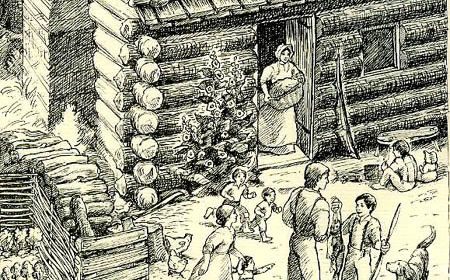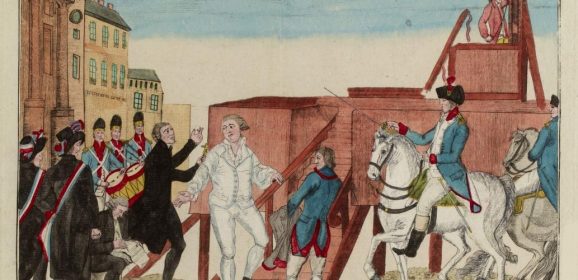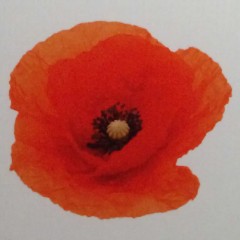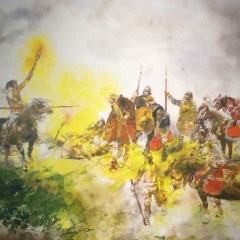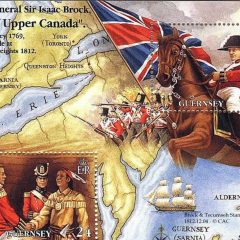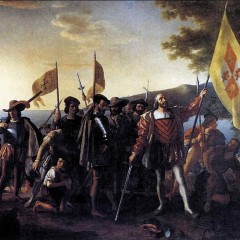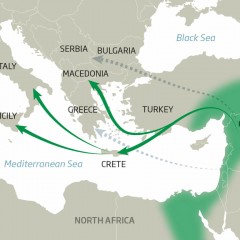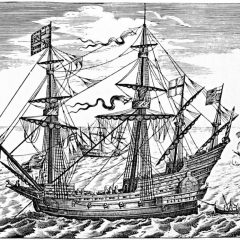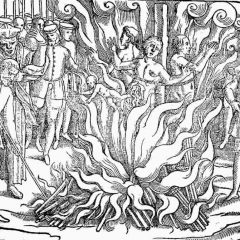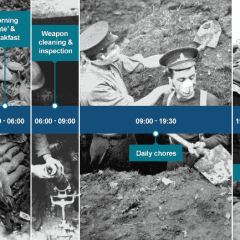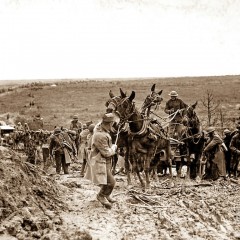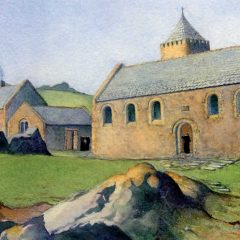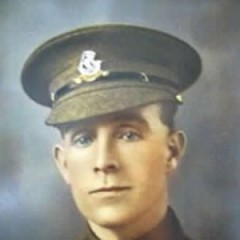The Poppy and the Bleuet – Symbols of Enduring Rememberence
“In Flanders Fields” is a poem which contains some of the most famous lines ever written about the Great War. In it lies the seeds of why we use the Poppy as the symbol of remembrance.
Otto von Bismarck – The Iron Chancellor
On the 1st of April 1815 a little boy was born in Kniephof, Prussia, a little boy destined to be known by history as “The Iron Chancellor”. A man around whom history would pivot, a man who would be the subject of many historical “What Ifs” with regard to his demise at the hands of the unstable “Kaiser Bill” and the path to World War I.
When Worlds Collide : The Romans and Jersey’s Celtic Treasure Hoards
Jersey is unique in many ways but there is one that is particularly curious. Of all the channel Islands it seems to have had the most treasure hoards of all. The latest, the Catillon II hoard, had over 70,000 coins in it plus 2 golden torqs. Even more curious is that 4 similar hoards were all buried at the same time – the mid 1st Century B.C. So what was going on?
Sir Isaac Brock, Guernseyman and Hero of Upper Canada
Guernseyman General Sir Isaac Brock is credited with saving Canada for the Empire from the attack by the Americans 1812. Knowing how much the Canadians gave in manpower and support in the 2 World Wars to Britain, who knows, but if he had failed the history and fate of modern Britain may have been very different indeed.
To Discover Strange New Worlds – Columbus’ Venture into the Unknown
Wednesday October 12th 1492 was no ordinary day, for on this day Christopher Columbus reached the New World. On that day, after sailing across the Atlantic Ocean, the Italian explorer sighted a Bahamian island, believing he had reached East Asia.
How did Farming Arrive in Europe ?
The first modern humans in Europe were hunter-gatherers who arrived around 40,000 years ago. But around 9,000 years ago the first farmers arrived. These farmers came from the Fertile Crescent in the Middle East – but how ?
Alderney’s Elizabethan Wreck
In 1977 one of the most important marine archaeological finds in the British isles was discovered right here in the Channel Islands off of the treacherous coast of Alderney. The find was so great that it is considered second only to that of King Henry VII’s warship the Mary Rose
Heresy and Infanticide in ‘Catholic’ Guernsey
When we think of the reign of Queen Mary I we often reflect on the prominent Protestant victims but there was one victim, local woman Perotine Massey, who’s name is not a familiar but her death was none-the-less just as controversial as the higher profile victims.
How Did So Many Soldiers Survive the Trenches ?
One of the most common myths about World War I was that ‘Most Soldiers Died’. The horrific stories and images from the front line all reinforce the idea that fighting in the trenches was one long bloodbath. However the fact is that nearly 9 out of 10 British ‘Tommies’ survived the trenches. But how?
Why did the Neanderthals die out ?
The archaeological evidence revealed that the earliest Neanderthals had lived in Europe about 200,000 years ago. But then, about 30,000 years ago, they disappeared… just at the time when the first modern humans appear in Europe. The question is Why ?
When Sark was a pawn in international politics
The history of the Channel Islands is anything but dull. Even the little island of Sark has been invaded, abandoned, sacked and liberated several times in the course of its’ history. However none has been more intriguing than the 16th century tale involving the French, a Holy Roman Emperor, the Governor of Guernsey and a Flemmish pirate no less!
The Guernsey Scottish – The Men from Guernsey who served with the Scots in WWI
In October 1914 the States of Guernsey decided to offer volunteers from the Militia to serve overseas. As part of the agreement to offer these men, these ‘sub-unit’s were to be kept together with a Guernsey identity. This is the story of one of those units the 9th Scottish Divisional Ammunition Column and teh Guernseymen that made it up.
The Guernsey Irishmen – The Men from Guernsey who fought with the Irish in WWI
At the outbreak of war in August 1914 the Guernsey the Militia was mobilised in order to free the Regular Army units of the garrison for overseas service. The States of Guernsey decided to offer volunteers from the Militia to serve overseas. The majority in 1915 went to the 16th Irish Division. This is their story.
Death & Retribution in the Priory of Notre Dame de Lihou
Lihou island off of Guernsey’s west coast, at first, looks like a tranquil, if not rugged, haven of peace and security. But there is a darker more salacious history to it that would even make readers of today’s gossip mags gasp. In this article we look at foul murders and dark deeds in what was supposed to be a place of spiritual contemplation and service for God.
Was Hitler’s Life Spared in World War I by a British Soldier ?
During the Great War Hitler claimed that he was wounded on the Western Front and recalled that a British soldier pointed his gun at him and then deliberately did not fire. But who was this mysterious British Soldier ?

